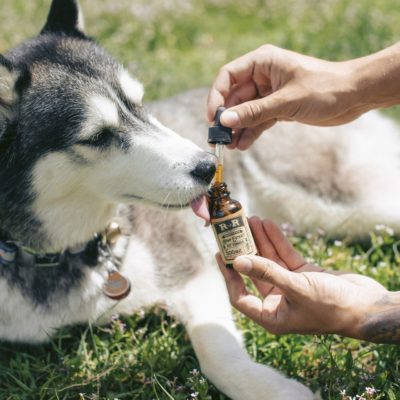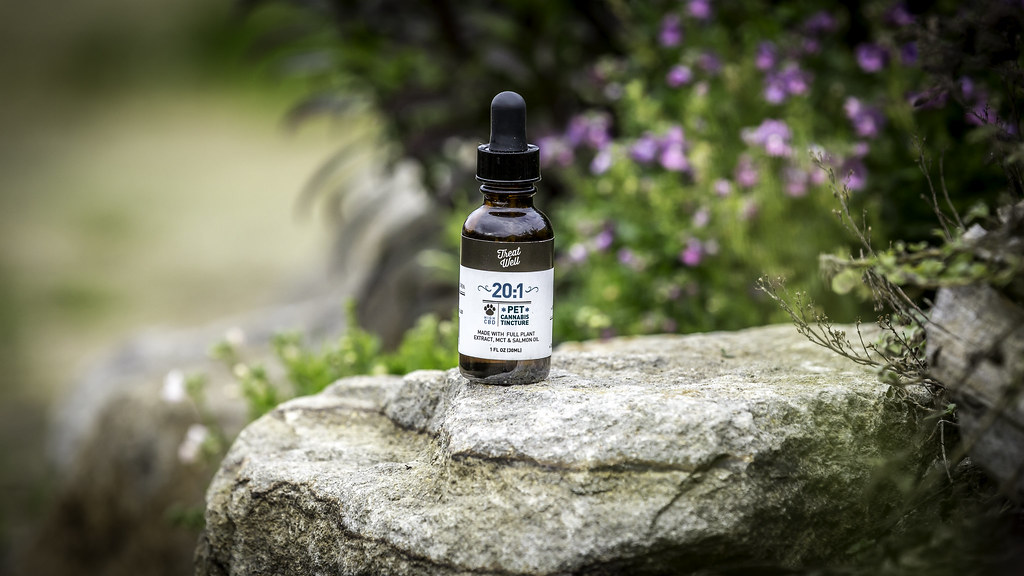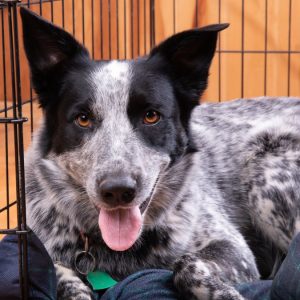
Now that some states have legalized cannabis, CBD oil has replaced coconut oil as the new miracle cure for humans AND dogs. With testimonials on social media promising cures for everything from anxiety to cancer, people are rushing to question veterinarians asking if CBD oil is right for their dog, often receiving a blank wall in response. While a lack of answers would frustrate anyone, it turns out there’s a reason your vet may be dodging your calls.
CBD Oil and the Law

CBD, or cannabidiol, is a compound derived from the cannabis plant. Unlike THC (tetrahydrocannabinol), it doesn’t have psychoactive properties, so it can’t produce a “high.” While both marijuana and hemp come from the cannabis plant, CBD oil is derived from hemp, so no problem, right? Wrong.
See, federal law states marijuana and its derived products are Schedule I drugs and illegal. In 2018, the Farm Bill allowed the cultivation and processing of industrial hemp and hemp-derived CBD oil…in some states. However, except for California, that Schedule I listing makes it ILLEGAL for veterinarians to discuss, recommend, or prescribe CBD oil! They can face disciplinary action or even lose their license. In California, vets are allowed to discuss CBD oil, though prescribing is still out. (And you thought they didn’t want to talk to you!)
CBD Oil and Dogs
If you run a quick search on CBD oil and dogs, the testimonials are endless, with claims of solving seizures, pain, anxiety, nausea, all the way up to curing cancer. The reality, unfortunately, is there isn’t research to back up those claims. So how to tell fact from marketing?
In 2018, Cornell University tested CBD oil and arthritis in dogs, concluding reasonable benefits. (The paper is worth the read, but prepare for scientific jargon!) We know CBD oil shares a similar metabolic pathway to non-steroidal anti-inflammatories (NSAIDs), so we CAN consider it a treatment for some pain conditions.
In 2019, Colorado State University tested CBD oil for treating dogs with idiopathic epilepsy (a fancy description used when the cause is unknown). In this case, dogs only benefited when they were already receiving traditional anti-seizure medications, leaving more questions than answers. We know CBD doesn’t have psychoactive properties — that’s one of its best qualities — so expecting an effect on the brain is uncertain.
This also calls into question its use for anxiety. You may need to take those testimonials with a grain of salt until more research is done.
Side Effects of CBD Oil for Dogs

No medication is without side effects, and while your veterinarian can’t prescribe it, CBD oil IS a medical treatment. Whether they can discuss it with you or not, you need to let your vet know you intend to start your dog on it — especially if they’re on any other medications. The last thing you want is a possible interaction, so keep your vet in the loop. (Believe me, they care, even if the law has tied their hands)
The most common side effects assosciated with CBD oil are:
- Dry mouth: Okay, your dog isn’t going to tell you their mouth is dry. However, you’ll notice them drinking more frequently.
- Drowsiness: This side effect is what people see most when they believe CBD oil treats anxiety; in truth, your dog is sound asleep! Monitor your dog’s sleeping pattern to make sure it isn’t increasing.
- Tremors: Tremors are always abnormal in dogs.
- Lightheadedness: Again, your dog can’t tell you they feel dizzy. Watch them, though; if they seem disoriented or have trouble finding their bearings, that could be a clue.
- Low Blood Pressure: This one’s tricky because you can’t see it (though lightheadedness is a symptom). Luckily, you told your vet you started CBD oil, so they’ll monitor your dog’s blood pressure regularly.
- Elevated ALKP: Again, you can’t see this side effect. ALKP (alkaline phosphatase) is a liver enzyme, and the research studies utilizing CBD oil showed increases, even at proper doses. We don’t know if the CBD oil irritates the liver or if it interferes with the measurement of ALKP, but your vet will need to do regular blood tests.
Research Your CBD Provider
Pardon the expression, but you can’t swing a dead cat without hitting a CBD store, and many of them provide both human and animal products. But are all CBD products created equal? Not by a long shot! If you’re going to start your dog on CBD oil, do your homework.
- First and foremost, human products are NOT safe for dogs. A lot of human CBD products contain Xylitol which is toxic to dogs. Stick to products designed for dogs and read the label.
- You want an organic product. This means you won’t have to worry about exposing your dog to pesticides, fungicides, or solvents.
- Look at the way the CBD oil is processed. Carbon dioxide and cold press extraction are SAFE. Cheaper processing methods utilize toxic solvents (propane, hexane, and butane) to extract CBD from hemp. This means you’ll have to pay more, but this is NOT where you want to be cost-conscious.
- You should receive a certificate of analysis (COA) that provides the results of independent testing of the company’s products. You’re looking for a product to contain less than 0.3% THC, and you also want to see how much CBD the product contains.
- CBD oil is the best form to administer because you can titrate the dose based on your dog’s response. Treats and chews are available, but it’s a lot harder to adjust them.
- Research the company:
- Have they been sued? Why?
- Has the FDA penalized them for making false claims?
- Is there a veterinarian working on the staff?
- Read their reviews, and start with the NEGATIVE reviews first – not the positive.
Monitor Your Dog’s Response to CBD
It’s easy to fall under the sway of the glowing testimonials surrounding CBD oil, especially if your dog is in daily pain. It’s also easy to WANT to see changes – whether or not they exist. The best way to evaluate if CBD oil is benefiting your dog is to take videos and review them.
Is he moving better?
Is she jumping more?
Taking your heart out of the equation will give you an accurate measure of your dog’s response.
And remember to include your vet in the conversation.













No comment yet, add your voice below!